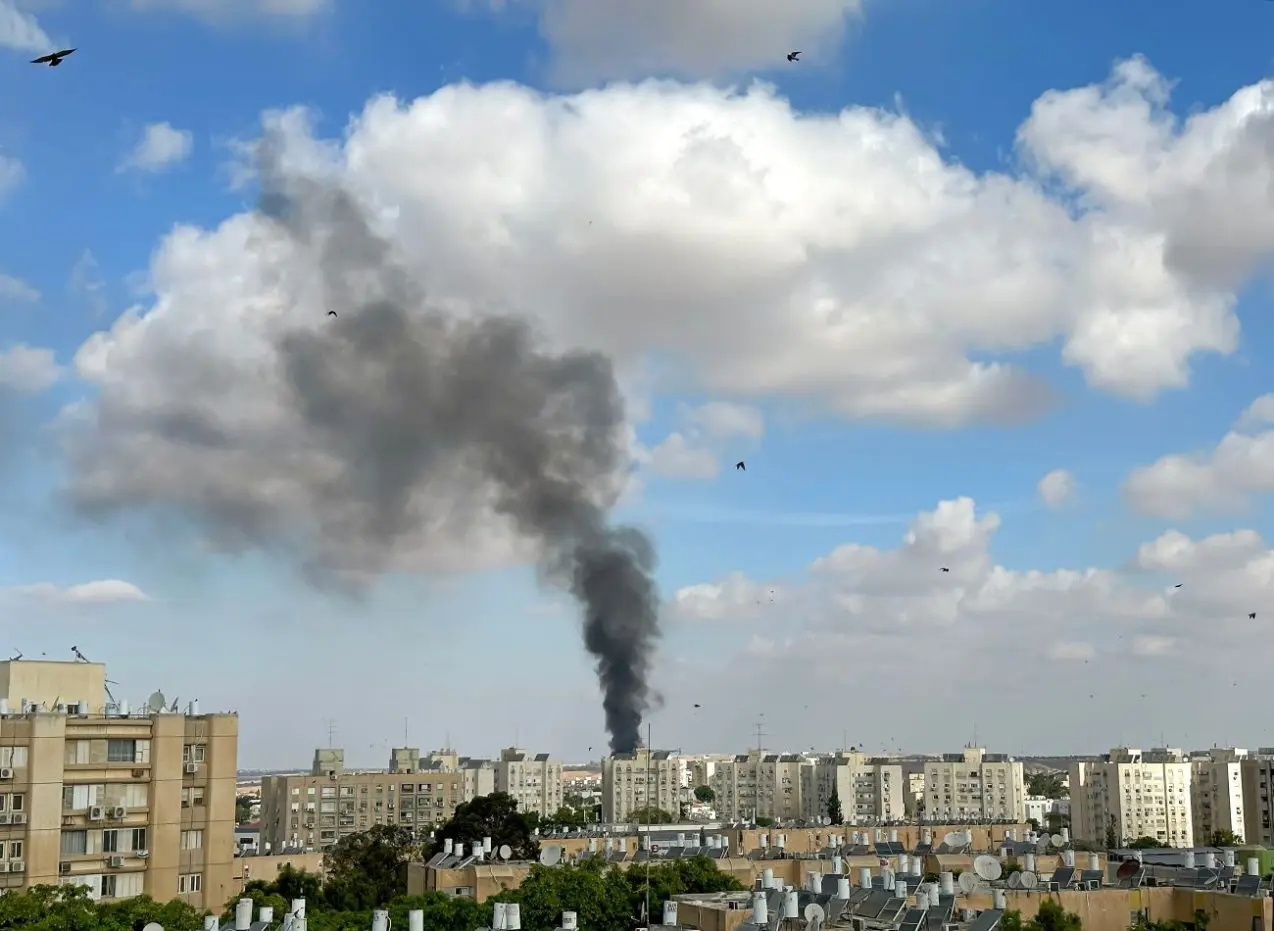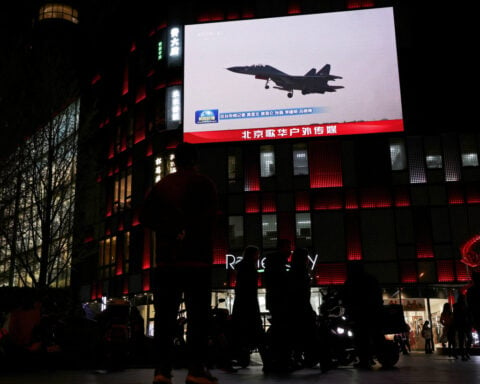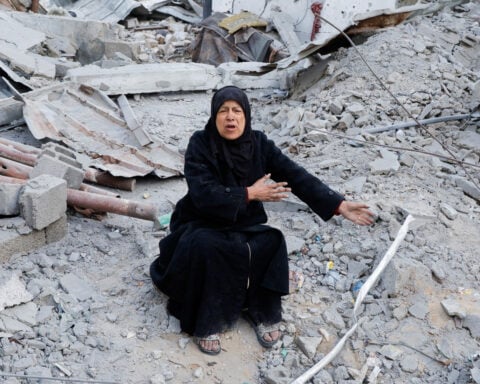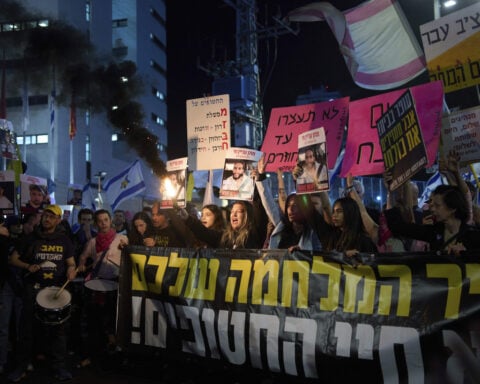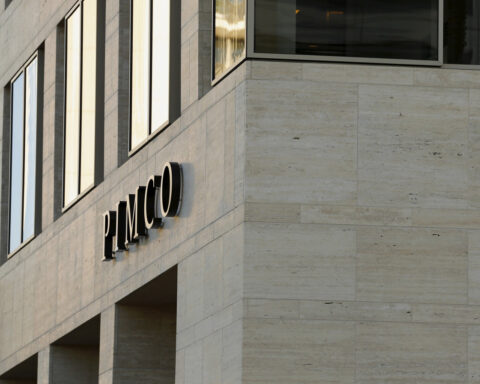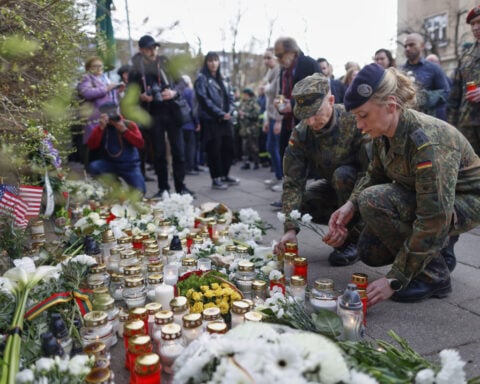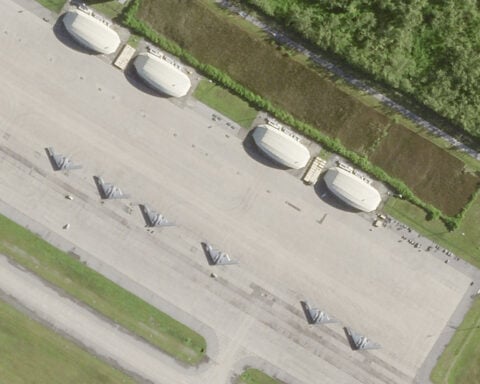The Israeli military is gearing up to target an elaborate network of tunnels built by Hamas underneath Gaza City, known as the “Gaza metro,” as part of its ground offensive into the Palestinian territory.
Hamas utilizes the underground passages to move fighters and weapons covertly. But given Gaza's extreme population density, the subterranean system dangerously hides military assets below civilian areas, according to Israel.
While tunnels have long offered asymmetric warfare advantages, Hamas has taken the concept to another level by constructing such an extensive tunnel network under one of the most crowded urban areas on Earth.
Nearly 2 million Palestinians live in Gaza City's mere 88 square miles. Hamas claims to have built over 500 kilometers (311 miles) of tunnels under the city, around half the length of New York's subway system.
“It’s a very intricate, very large – huge – network of tunnels on a rather small piece of territory,” said Daphne Richemond-Barak, an expert on underground warfare at Israel's Reichman University.
The tunnels are said to be several kilometers deep in some areas. Wired with electricity and reinforced with concrete, the passages provide storage, transport, and shelter for Hamas' rockets and command centers.
Hamas likely invested massive capital and manpower to build the network. But its opacity frustrates Israel's advanced military capabilities.
“It’s always difficult to deal with tunnels, don’t get me wrong, in any context, but when they are urban area, then everything is more complicated," Richemond-Barak said.
The labyrinth has enabled Hamas to negate some of Israel's technological advantages. Tunnels offer invaluable cover for asymmetric warfare against a more powerful enemy.
But hiding military assets under civilian areas essentially turns people into human shields, Israel says. This complicates its efforts to eliminate the network.
Israel's impending ground incursion aims to damage Hamas' subterranean infrastructure. But such operations risk civilian casualties despite warnings for Gaza residents to evacuate.
The United Nations said over 5,000 Palestinians have been killed since conflict escalated in early October. Israel contends Hamas rockets fired indiscriminately at its civilians precipitated the crisis.
After Hamas killed over 1,400 Israelis in attacks beginning October 7, Israel implemented an air campaign targeting the group's infrastructure. Now it is poised to send ground forces to clear remaining tunnels.
Previous operations have shown technology alone cannot neutralize the threat. After spending billions on advanced border security, tunnels still enabled Hamas' multi-pronged October 7 offensive.
"There is no foolproof solution to deal with a tunnel threat," Richemond-Barak said. "There’s no Iron Dome for tunnels.”
Israel can either collapse tunnels or destroy them with airstrikes. But bombing tunnels risks civilian casualties despite cautions for Gaza residents to evacuate.
Ultimately, a combination of intelligence gathering, surveillance technology, civilian awareness and ground operations will likely be needed to manage the subterranean threat.
Hamas began constructing the Gaza metro after Israel imposed a blockade on Gaza in 2007. The group has long used tunnels to smuggle restricted goods and stage attacks.
But the latest conflict demonstrates how Hamas leveraged the blockade to build a sophisticated tunnel network over the past decade, even diverting humanitarian resources for construction.
“It’s a very intricate, very large – huge – network of tunnels on a rather small piece of territory,” said Richemond-Barak.
For years, Israel has undertaken operations specifically targeting the tunnel network's key nodes and passageways. A 2014 ground assault aimed to eliminate the underground infrastructure.
Now, Israel's impending move into Gaza City seeks to degrade remaining tunnels granting Hamas an invaluable asymmetric edge. Expectations were the operation would be complex, costly and carry inherent risks.
Yet with rockets still streaking over the Israeli heartland, Prime Minister Benjamin Netanyahu faces immense pressure to deliver a decisive blow to Hamas' capabilities.
That likely requires dismantling the Gaza metro, despite the military challenges of destroying tunnels tucked below the city's densely packed streets.
"It’s always difficult to deal with tunnels, don’t get me wrong, in any context, but when they are urban area, then everything is more complicated," said Richemond-Barak.
Ultimately, the underground passages represent one of Israel's most confounding strategic dilemmas. Neutralizing the threat could help restore long-term calm after a devastating month of bloodshed.
But as Israeli tanks roll into Gaza City, the military knows eliminating the Gaza metro's key tunnel arteries will carry massive risk. Israel contends it has no choice but to directly confront one of Hamas' deadliest weapons.

 Trump has begun another trade war. Here's a timeline of how we got here
Trump has begun another trade war. Here's a timeline of how we got here
 Canada's leader laments lost friendship with US in town that sheltered stranded Americans after 9/11
Canada's leader laments lost friendship with US in town that sheltered stranded Americans after 9/11
 Chinese EV giant BYD's fourth-quarter profit leaps 73%
Chinese EV giant BYD's fourth-quarter profit leaps 73%
 You're an American in another land? Prepare to talk about the why and how of Trump 2.0
You're an American in another land? Prepare to talk about the why and how of Trump 2.0
 Chalk talk: Star power, top teams and No. 5 seeds headline the women's March Madness Sweet 16
Chalk talk: Star power, top teams and No. 5 seeds headline the women's March Madness Sweet 16
 Purdue returns to Sweet 16 with 76-62 win over McNeese in March Madness
Purdue returns to Sweet 16 with 76-62 win over McNeese in March Madness
